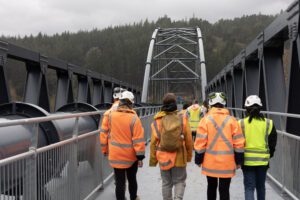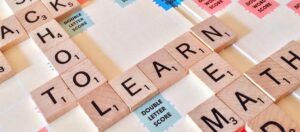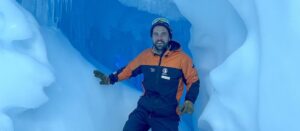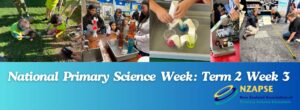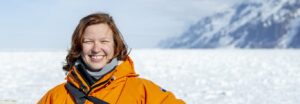Despite decades of awareness and positive action. There is still a significant gender gap in many careers based on Science, Technology, Engineering, and Mathematics (STEM) subjects. NZASE science communicator, Heather Goodey, looks at two initiatives that are trying to buck the trend in female participation in STEM careers. Girls into infrastructure Started by Arden Hermans, […]
Read MoreDr Stuart Farmer: Sharing his thoughts on the curriculum review in Scotland
A recent visitor to Aotearoa, Dr Stuart Farmer is an experienced Physics teacher who is now the Education and Workforce Manager (Scotland) at the Institute of Physics and a fellow at Stirling University. With over 30 years of teaching experience, a PhD in education, and extensive involvement in teacher professional learning and a long history […]
Read MorePhysical Oceanographer | Ollie Twigge
Science technician might not be a job you hear much about at career evenings, but it plays a key role in how science gets done. Ollie Twigge, a physical oceanographer with Oceanly, talks with science communicator Heather Goodey about how his work combines his love for the ocean, practical skills, and environmental values. From designing […]
Read MoreHighlights from Primary Science Week 2025
Relive the highlights of Primary Science Week 2025 and get inspired for an even bigger 2026. From PLD and competitions to ‘Ask a Scientist’ and school-wide events, discover how one community came together to create a week full of science excitement for curious young minds. Each year schools and students around Aotearoa participate in Primary […]
Read MoreMarine biologist | Jacqui Stuart
Marine biologist and ecologist Jacqui Stuart of the Antarctic Research Centre studies microalgae in Antarctica. From graphic designer to research scientist, she shares how and why she investigates these tiny organisms both in the lab and the field. Science communicator Heather Goodey finds out more.
Read MoreZooplankton Ecologist | Svenja Halfter
Dr Svenja Halfter is a pākeha zooplankton ecologist with the National Institute of Water and Atmospheric Research (NIWA) who focusses on how Antarctic zooplankton communities impact the drawdown of carbon in the ocean. In this article, she shares her journey and passion for zooplankton with NZASE science communicator, Heather Goodey.
Read MoreScience Communicators | Mike Stone and Jenny Rankine: Sharing science with the public
Mike Stone and Jenny Rankine are the dynamic duo who produced the NZASE Pānui for the last five years. In conversation with the current Science Communicator, Heather Goodey, they have shared their journey as former science communicators, their passion for their work and highlights from their time with NZASE.
Read MoreCreating a science space in the classroom: Fostering curiosity and inquiry
The awesome thing about science is that students are innately curious about the world around them and how things work. A science space might be something you think of in ECE, but it is an opportunity to give students hands‐on experiences, engage learners and extend learning. Creating a science space in the classroom is a way to give Science presence in a busy curriculum with so many pressures on teaching time. NZASE science communicator Heather Goodey talks with teachers from Y1‐6 who have incorporated science spaces in their classroom. They share their goals, approach and advice for educators interested in how they might include science spaces in their teaching programmes.
Read MoreMāori textiles and dyes as a context for teaching science
Charmaine Russell, Ngāti Ranginui and Ngāi Te Rangi, was looking for opportunities to weave together rāranga and the chemistry of traditional dyes. She shares her experience with NZASE Science Communicator Heather Goodey, providing a context that could be used for Level 1 assessments or adapted for use in the classroom at multiple levels.
Read MoreA Teacher’s Journey of Integrating Mātauranga Māori in an Authentic Way
Charmaine Russell, Ngāti Ranginui and Ngāi Te Rangi, shares her insights for those trying to honour Te Ao Māori in their teaching. She provides guidance on integrating mātauranga Māori in an authentic way, from her kaiako Māori perspective. Charmaine hopes to “sow the seeds of thought and reflection,” for kaiako across New Zealand by sharing her journey with NZASE Science Communicator Heather Goodey
Read More
